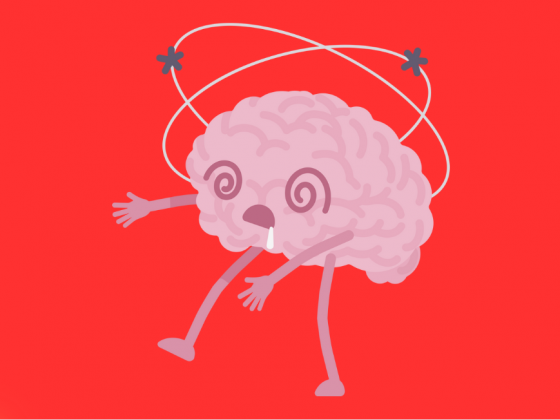Introduction
You’re looking to uplift your mental health, right? Well, you’re in luck! By weaving these 10 simple habits into your daily routine, you’ll feel more balanced and energized.
From prioritizing sleep to expressing gratitude, each step is a stride towards a happier you. Don’t just dream of well-being; make it your reality.
Start today, and watch how small changes can spark a significant transformation in your life. Ready to take charge? Let’s dive in!
Prioritize Quality Sleep
Everyone needs to ensure they’re getting enough quality sleep, as it’s a cornerstone of mental health and overall well-being. You’ve probably heard it before, but it’s worth repeating: aim for 7 to 9 hours of sleep each night. It’s not just about clocking in hours; it’s the quality that counts. Make your bedroom a sleep sanctuary. Keep it dark, cool, and quiet. Invest in a comfortable mattress and pillows that support your sleeping style.
Your sleep hygiene matters too. You should establish a consistent bedtime routine. This signals to your body that it’s time to wind down. Limit screen time before bed, as the blue light from devices can disrupt your natural sleep cycle. Instead, read a book or practice relaxation techniques like meditation.
Don’t underestimate the power of napping either. A short, 20-minute nap can boost your alertness without throwing off your nighttime sleep schedule. Just make sure not to nap too late in the day.
Practice Mindful Breathing
You’ve likely heard that mindful breathing can be a game-changer for your mental health.
By focusing on your breath, you’re not only reducing stress levels but also sharpening your concentration.
And as an added bonus, this simple practice can pave the way for a more restful night’s sleep.
Reduces Stress Levels
Incorporating mindful breathing into your daily routine can significantly lower your body’s stress response. This simple practice helps you focus on the present moment, slowing down your heart rate and signaling your brain to relax. When you’re feeling overwhelmed, take a few minutes to concentrate on your breathing.
Inhale deeply through your nose, feeling your diaphragm expand, and then exhale slowly through your mouth. As you do this, you’ll likely notice a sense of calm wash over you. This isn’t just in your head; you’re actively reducing the production of stress hormones like cortisol.
Enhances Focus
Why stop at reducing stress when you can also enhance your focus with the same practice of mindful breathing? It’s a simple technique, yet incredibly powerful. By concentrating on your breath, you’re training your mind to focus on the present moment. This isn’t just calming; it sharpens your attention.
Here’s what to do: find a quiet spot, sit comfortably, and close your eyes. Inhale slowly through your nose, hold for a moment, and exhale through your mouth. As you breathe, let go of distractions. If your mind wanders, gently bring it back to your breath.
With regular practice, you’ll notice an improvement in your ability to concentrate on tasks throughout your day. Give it a try and watch your focus soar.
Improves Sleep Quality
Another benefit of mindful breathing is that it can significantly improve your sleep quality, helping you feel more rested each morning. When you’re tossing and turning, your mind racing with thoughts of the day, it’s time to turn to mindful breathing.
This simple practice encourages your body to enter a state of relaxation, making it easier for you to drift off to sleep. By focusing on the rhythm of your breath, you’re signaling to your nervous system that it’s safe to unwind and let go of the day’s stress.
Inhaling deeply and exhaling slowly reduces your heart rate and prepares your body for sleep. You’ll find that with consistent practice, you’re not only falling asleep faster but also enjoying a deeper, more restorative night’s rest.
Engage in Physical Activity
You’ve likely heard that exercise is good for your body, but it’s also a powerhouse for your mental health.
Lacing up for a brisk walk or hitting the gym can significantly lower your stress levels and enhance your mood.
Plus, regular physical activity can lead to deeper, more restful sleep, rounding out a trio of mental health benefits.
Exercise Reduces Stress
Kick-start your day with physical activity to cut down on stress and elevate your mental well-being. When you exercise, your body releases endorphins—these are natural mood lifters that can keep stress and depression at bay. Whether it’s a brisk walk, a yoga session, or a quick run, find an activity that you enjoy and make it a part of your daily routine.
Don’t worry if you’re pressed for time; even short bursts of exercise can be beneficial. A 10-minute workout can increase your mental alertness and lower anxiety levels. Plus, staying active promotes better sleep, which is crucial for stress management and overall health.
Boosts Mood
In addition to reducing stress, engaging in physical activity can significantly enhance your mood by triggering the release of feel-good neurotransmitters like serotonin and dopamine. These natural chemicals are your body’s way of elevating your spirits and promoting a sense of well-being.
You don’t have to run marathons or lift heavy weights to feel the benefits; even a brisk walk or a short dance session can make a noticeable difference in how you feel.
Improves Sleep Quality
Regular physical activity can improve your sleep quality, helping you fall asleep faster and enjoy deeper rest. When you exercise, your body temperature rises and then drops a few hours later, which can promote drowsiness. Moreover, being active reduces stress and anxiety, which are often culprits behind tossing and turning at night.
To maximize benefits, aim for moderate aerobic exercise during the day. However, avoid high-intensity workouts close to bedtime as they might overstimulate you. Instead, consider gentle activities like yoga or stretching in the evening to wind down.
Nourish With Balanced Diet
Every meal you eat is a chance to fuel your brain with the vitamins and nutrients it needs for optimal mental health. A balanced diet isn’t just about keeping your body in shape; it’s about nourishing your mind too. Think of your food choices as part of your self-care routine. You wouldn’t ignore your car’s fuel needs, so don’t do that to your brain.
Incorporate a variety of foods into your diet. Lean proteins, whole grains, and a rainbow of fruits and veggies provide the building blocks for neurotransmitters, the brain’s messengers. Omega-3 fatty acids, found in fish like salmon, are especially good for brain health. They’re linked to improved mood and cognitive function.
Don’t forget hydration; water is crucial for every cell in your body, including those in your brain. Dehydration can lead to brain fog and fatigue, so keep a bottle of water handy throughout the day.
Limiting sugar and processed foods can also be beneficial. These can lead to energy crashes and mood swings. Instead, opt for snacks that release energy slowly, like nuts or yogurt.
Cultivate Social Connections
Your brain’s health extends beyond nutrition to the vital connections you make with others, which can significantly enhance your mental well-being. Engaging with friends, family, and even strangers can provide you with a sense of belonging and support. It’s not just about the number of friends you have; the quality of those relationships matters most. Make it a point to nurture deep, meaningful connections.
Regular social interactions can help ward off feelings of loneliness and depression. They can also stimulate your mind and create a sense of shared joy or understanding, which can be especially helpful during tough times. If you’re not sure where to start, try joining a club, taking a class, or volunteering. These activities can help you meet like-minded individuals and form new friendships.
Don’t underestimate the power of a simple conversation, either. Even small talks with neighbors or colleagues can improve your mood and make you feel more connected to your community. Remember, it’s about making genuine interactions, not just increasing your social network online. So, pick up the phone, schedule a coffee date, or start a conversation today. Your mental health will thank you for it.
Embrace Nature Exposure
Stepping outside and surrounding yourself with greenery can do wonders for your mental state.
You’ll find that engaging in outdoor activities not only lifts your spirits but also has a profound impact on your physical health.
Plus, soaking up some sunlight is a natural way to boost your Vitamin D levels, essential for overall well-being.
Green Spaces Benefits
Green spaces offer you a natural oasis for mental rejuvenation, grounding your senses in the calming embrace of the outdoors. Strolling through a park or hiking in the woods can significantly lower stress levels, enhance mood, and improve your overall sense of well-being.
It’s the simplicity of nature that works wonders; the rustle of leaves, the chirp of birds, and the fresh, clean air all contribute to a more peaceful state of mind.
Research shows that regular exposure to greenery reduces anxiety and depression. It’s not just about relaxation, though. Nature walks boost creativity and concentration, too.
Outdoor Activities Impact
Incorporating outdoor activities into your daily routine can further enhance the mental health benefits gained from spending time in green spaces. Soak up the sun and let the vitamin D boost your mood. Try a morning walk to set a positive tone for your day. The fresh air clears your mind, and the natural light helps regulate your sleep-wake cycle.
Engage in activities like cycling or hiking to combine exercise with nature exposure. This not only improves your physical fitness but also reduces stress and anxiety. Gardening is another way to connect with nature while also giving you a sense of accomplishment.
Sunlight Vitamin D
Your body’s production of vitamin D can be significantly increased by regular exposure to sunlight, enhancing your mood and overall mental well-being. Vitamin D, often dubbed the ‘sunshine vitamin,’ isn’t just crucial for your bones; it’s also essential for brain health.
When you’re out in natural light, even for just a few minutes each day, you’re helping fend off depression, particularly seasonal affective disorder.
So, step outside and bask in the glow whenever you can. Whether it’s a brisk walk in the park or simply sitting on a bench, that sun on your skin is working wonders.
Just don’t forget to protect yourself with sunscreen after a short initial exposure, because while sunlight can uplift your spirit, you’ve got to be mindful of ultraviolet rays.
Set Realistic Goals
Establishing attainable objectives can significantly elevate your sense of accomplishment and contribute to better mental health. When you set goals that are within your reach, you’re not just setting yourself up for success; you’re also giving yourself clear direction and purpose. It’s about knowing your limits and working within them to gradually expand your capabilities.
As you embark on this journey, break down your larger goals into smaller, manageable tasks. This way, you won’t feel overwhelmed. Each small victory will boost your confidence and motivate you to keep going. Remember, it’s not about how fast you achieve your goals but that you’re moving forward, one step at a time.
Don’t forget to celebrate your progress, no matter how small. Acknowledging your achievements reinforces positive behavior and nurtures your mental well-being. If you stumble, don’t be too hard on yourself. Setbacks are part of the process, and they’re opportunities to learn and grow.
Lastly, be flexible with your goals. Life’s unpredictable, and your objectives may need to adapt. By staying open to change, you’ll maintain your mental agility and resilience, keeping stress at bay and your mental health in check.
Dedicate Time to Hobbies
While you’re juggling daily responsibilities, it’s crucial that you also carve out moments for activities you love, as hobbies can be a powerful tool for maintaining mental balance and happiness. They aren’t just a way to pass the time; they’re vital for stress relief. Engaging in a hobby you’re passionate about can redirect your mind from worries and help you focus on the present.
Dedicating time to hobbies can also boost your self-esteem as you improve and achieve new things, whether you’re knitting a scarf, building a model, or mastering a new piece of music. This sense of accomplishment is a natural mood lifter. Moreover, hobbies often connect you with others who share your interests, providing a social network that can offer support and camaraderie.
Reflect Through Journaling
Reflecting by journaling allows you to process your thoughts and emotions, offering a private space for self-discovery and mental clarity. It’s like having a conversation with yourself, where you’re free to express whatever’s on your mind without judgment. You’ll find that putting pen to paper can sometimes unravel complex feelings you didn’t realize were weighing you down.
Make it a daily ritual. You don’t need a fancy notebook or hours of free time—just a few minutes each day to jot down your thoughts, feelings, and experiences. It’s not about crafting perfect sentences; it’s about being honest with yourself. You might be surprised by what you learn when you start writing without a filter.
Use prompts to kickstart your reflection if you’re staring at a blank page. Ask yourself questions like, ‘What am I grateful for today?’ or ‘What challenged me, and how did I respond?’ This practice can help you identify patterns in your thoughts and behaviors, leading to greater self-awareness.
Practice Daily Gratitude
Integrating gratitude into your daily routine can significantly enhance your overall mental well-being. It’s about shifting focus from what’s lacking in your life to appreciating what you already have. Start by setting aside a few minutes each day to reflect on the positives, no matter how small they may seem. You could be thankful for a good cup of coffee, a helpful colleague, or simply the sunshine on your face.
Make it a habit to note down three things you’re grateful for every day. This could be in a journal, on your phone, or even mentally acknowledged during a quiet moment. As you cultivate this practice, you’ll notice a gradual uplift in your mood and a decrease in feelings of anxiety and depression.
Don’t forget to express your gratitude to others as well. Saying ‘thank you’ to someone can strengthen your relationships and spread positivity. It’s a reciprocal action that rewards both the giver and the receiver.
Frequently Asked Questions
How Can I Manage My Mental Health if I Work Irregular or Night Shifts, Affecting My Sleep Patterns?
You’re facing a challenge with your mental health due to irregular or night shifts disrupting your sleep.
To manage, stick to a consistent sleep schedule as much as possible. Create a dark, quiet sleeping environment during the day.
Also, prioritize downtime to relax and try short naps to refresh yourself. Don’t forget to stay connected with friends and family, as social support is crucial.
Regular exercise and a balanced diet will also help stabilize your mood.
Are There Any Specific Mindful Breathing Techniques Recommended for Individuals With Respiratory Issues Like Asthma?
Absolutely, you’ll find specific mindful breathing techniques that cater to those with respiratory conditions like asthma. The Buteyko breathing method, for instance, is designed to reduce hyperventilation. It’s about taking slow, shallow breaths through your nose.
Another technique is diaphragmatic breathing, which emphasizes deep breaths from your diaphragm.
It’s crucial you consult with your healthcare provider before starting these to ensure they’re safe and suitable for your individual needs.
What Should I Do if I Live in an Unsafe Neighborhood Where Engaging in Outdoor Physical Activity Isn’t an Option?
If you’re in an unsafe neighborhood and can’t exercise outside, consider indoor workouts. You’ve got options like online fitness classes, yoga, or even dancing to upbeat music.
Don’t forget, stair climbing is great cardio, and you can often do it without leaving the building. Also, look into local community centers or gyms—they might offer a safe space for physical activity.
How Can I Maintain a Balanced Diet When I Have Multiple Food Allergies or Intolerances That Limit My Food Choices?
You’ll want to focus on what you can eat rather than what you can’t. Start by identifying safe, nutrient-rich foods that don’t trigger your allergies. Consult with a dietitian to create a balanced meal plan tailored to your needs. They can help you find substitutes for common allergens and ensure you’re getting a variety of nutrients.
Don’t forget to read labels carefully and consider hypoallergenic options to broaden your food choices.
Can Digital Social Connections, Such as Those Formed Through Online Gaming or Social Media, Be as Beneficial for Mental Health as In-Person Interactions?
Digital social connections, like those from online gaming or social media, can positively impact your mental health. They’re not always equal to face-to-face interactions but can still provide meaningful support and a sense of community. You’ll find that these virtual connections can offer comfort, especially if you’re unable to meet people in person.
Conclusion
You’ve got this!
Prioritize your sleep and take deep, mindful breaths to stay centered.
Keep your body moving and fuel it with a balanced diet.
Don’t forget to connect with others and set achievable goals.
Make time for your hobbies, reflect in your journal, and remember to count your blessings daily.
These simple habits are your stepping stones to a healthier mind and a happier life.
Embrace them and watch your well-being soar!





